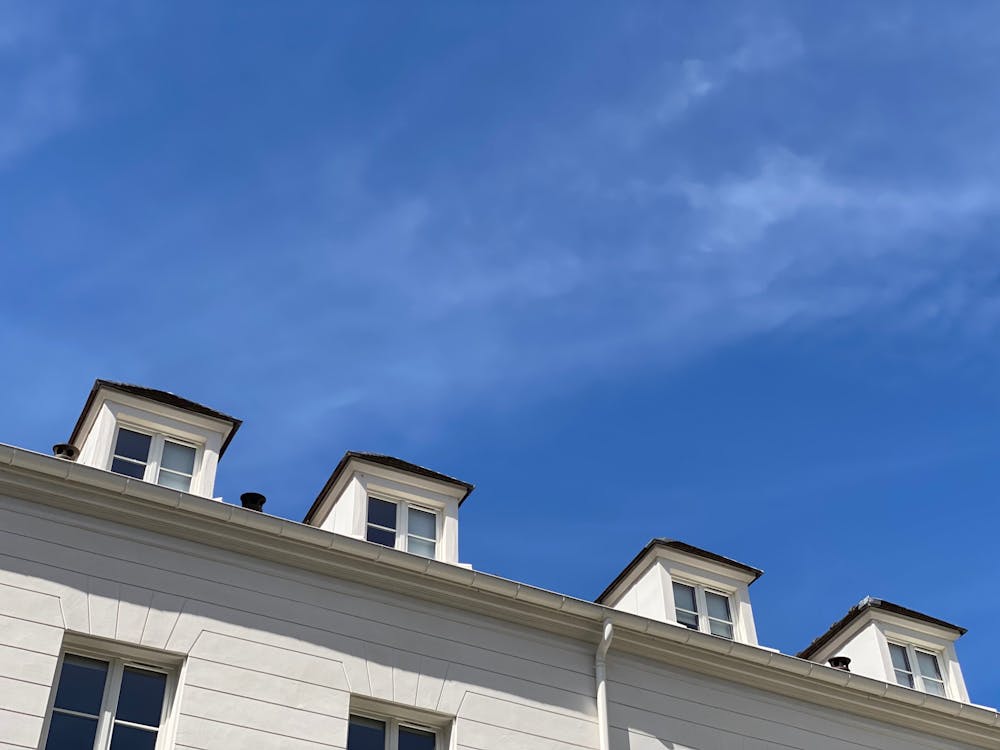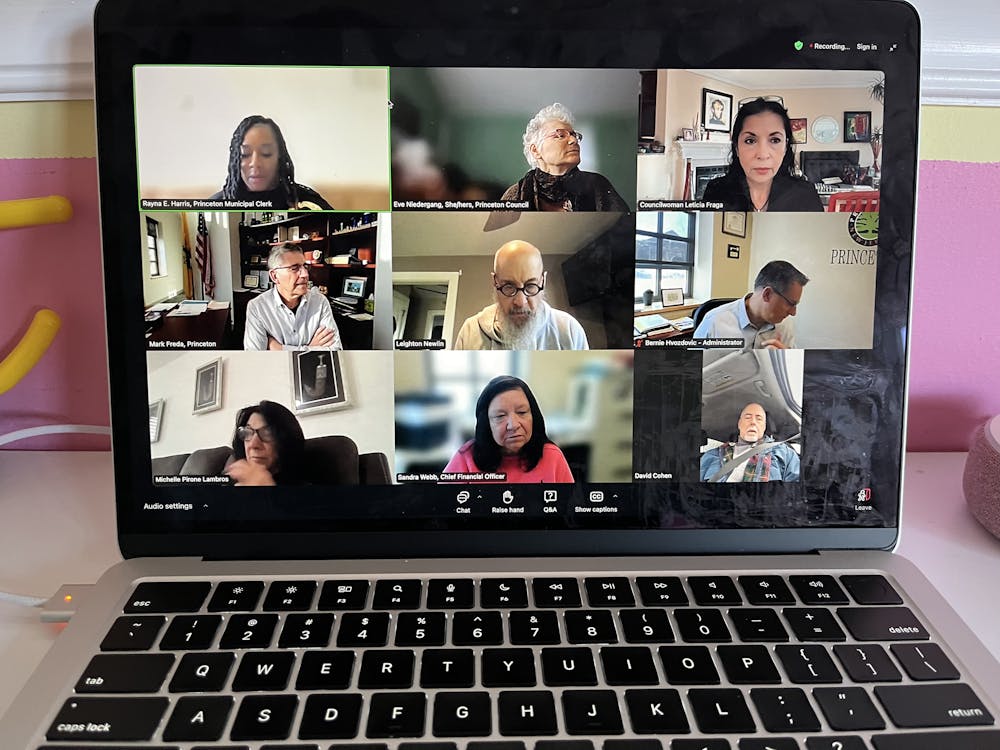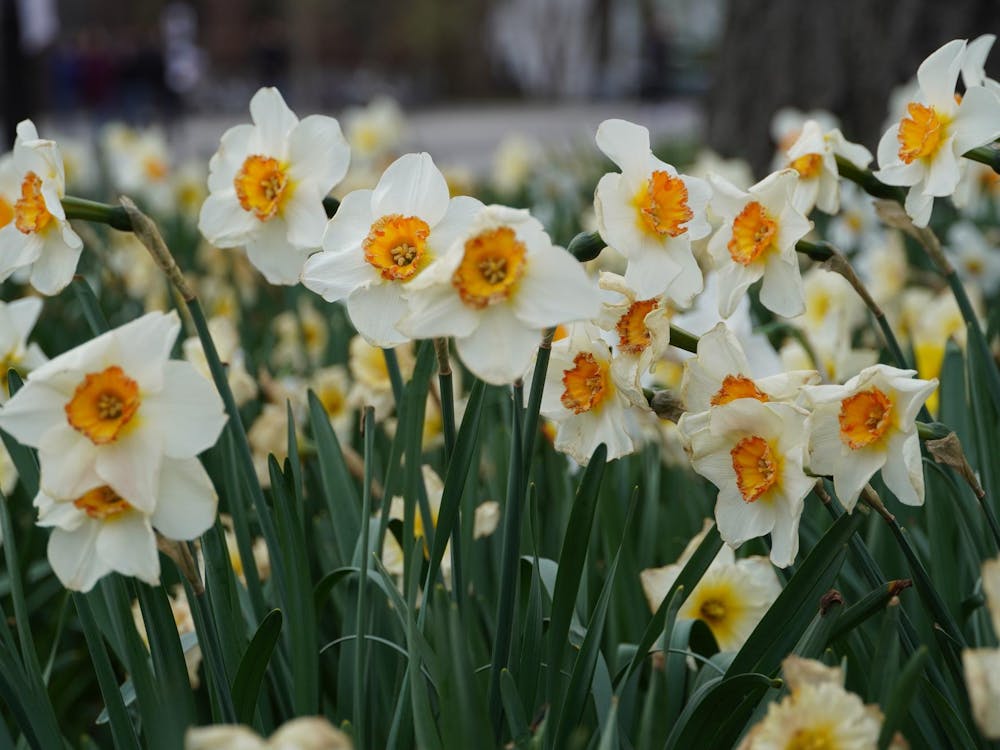Content Warning: The following piece contains mentions of death.
Before I started writing for this paper, a Google search of my name turned up my dad’s obituary — not any of my essays. When I discovered that some years ago, I didn’t bother searching my name again for years; all morbid curiosity was crushed. This August 2 marks a decade since he died following years of withering away with cancer, so now I write: I tell myself the grave is not where the dead live on. The heart and mind shelter them instead.
I’m unsure of the direction my words will take because some days I feel like I’ve already said everything one could possibly have to say. He died. I was 12. It’s been 10 years. On to the next 10. Other days, I hesitate at those curt statements; I feel like I’ve barely said anything at all. And then some days I somehow feel both things at once.
Where to start? I’ve only been to one other funeral since my dad’s own. I’ve avoided all the others, after the first one, since his own showed me that all funerals are often more similar to each other than I could bear. I’ve muted the word cancer on Twitter for a while now. It often goes viral when framed as an inspirational battle fortunately won or valiantly lost. Nothing about it is inspirational. I don’t visit his grave — the last time was years ago when my mom took me to the cemetery so I could learn to drive on its quiet, winding paths. I guess these are all measures of avoidance, of control, of protection. Sometimes, such measures are necessary. But I don’t always avoid; sometimes I confront.
Sometimes I read the diary my preschool teacher wrote to keep my parents up to date on classroom activities. It’s full of his signatures acknowledging a parent had read the most recent entry. The entries track my progress learning English. They record his time as a field trip chaperone. On separate occasions, we went to the firefighter museum and a pumpkin patch. They remind me of how he would walk me to the preschool behind our neighborhood when the weather was nice, and we would take the car when it wasn’t. There are few other memories from before he was sick; I was so young. I felt older at the time.
Sometimes I think back to his final moments. His end began the week I spent at my first ever sleepaway camp. It became the only week I’ve ever spent at sleepaway camp. It was 2012, so “Call Me Maybe” was the song of the summer and the song played to mark the end of lunchtime every day. It’s a song I still love — sometimes I’ll loop it. I have fluctuating thoughts on why I like it so much. Sometimes I think it’s because the song soundtracks the last of the before. Sometimes, I just think it’s a pop masterpiece. Sometimes, maybe looping it will freeze time for one more verse, one more chorus.
Other times, I think I’m strong enough to write a one-man autobiographical scene about all this. It was an assignment to be performed for my first theater class at Princeton. It leaves me cold and shaking in the Lewis Center for the Arts — even though I say I’m fine — until I can walk back to my dorm to sleep the rest of the day, leaving my roommates somewhere between confused and worried. Then I wake up the next morning feeling like a weight has finally been lifted off my shoulders: a new peace has been found.
Now, I write these essays. So many times I’ve directly drawn on these experiences. How could I not? They’re so much of what I ever knew. But even when I avoid the topic directly, I think it’s often still present. Why wouldn’t it be? This illness and loss shaped so much how I see the world, see myself. I think of this with every quip about the section I lead on this paper publishing so much sad stuff. I’ve never agreed with such a sentiment. It’s not sad stuff; it’s life. And I don’t mean that in a cynical way. Nor do I mean it in a way that glorifies the sufferings of the world.
It’s just life.
To ignore, to hide it, to pretend it doesn’t exist would be the real offense: the crime of denying ourselves every feeling — comforting or painful — we have known and can endure. It’s part of our memories. Part of our love. Part of our hope. Part of ourselves. How many of our communities are brought together by tragedy? How much tradition do we have for commemorating past tragedy? The desire isn’t for more sorrow as a means to an end. If anything, the desire is to remove shame from any grief.
Each time I meet someone new, I eventually wonder when or if I should bring up the topic. This debate might be one of the few other things as terrible and as permanent as the death itself. It’s impossible to escape this question regardless of the time passing. I mention the death, and then I have to deal with the reaction despite often wanting to simply move along with the day. I omit it, and then there are so many absences in the stories I tell about myself.
That’s been one of my recent shower thoughts. The more time goes on, the less frequently I tell stories about my dad. Most commonly, I talk about recent happenings, about current developments, about upcoming plans. He hasn’t been any of those things for a decade. But it still feels wrong to leave him out of how people come to know me. I wonder if people think we just aren’t close, that he’s not as involved as my mom. I wonder if people realize he died by the subtle gymnastics of my words. What do your parents do? They both studied engineering. My mom works as a capital systems director. My dad worked — most people don’t seem to notice the shift to past tense; I wonder if they assume retirement. There are so many tricks like this that one learns over time.

I learn so many things. I learn how to avoid, and I learn how to confront. I learn how to embrace, and I learn how to expunge. And I learn to leave August 2 open on my calendar because I don’t know what emotion will reign in any particular year. Or I learn to draft an email in advance to send to my summer study abroad professors just in case the tenth August 2 since — a class day — shapes up to be particularly brutal. I learn the day is just as likely to pass by like any other day; one year I don’t remember anything until it’s almost the third. I’ve never learned how to know which it will be ahead of time.
And then at some point in all this come the tears, and then the words to write. I write all this down, and I’m not sure for whom it is that I write. For me. For him. For someone else. I think it’s mostly for me.
It’s for me, who just now realized that before this summer ends, I’ll have reached half the age my dad was when he died. It’s for me, who races to write down as many memories before it’s too difficult to recall them. It’s for me, who replaces my dad’s obituary with the stories of my own life. It’s for me, who calls grief an old companion, and for me, who builds a life around joy.
A life around joy. What does that look like? Well. I am a happy person. Happy people don’t always receive happy lives. They often have to construct them on their own — find their own passions, their own dreams, their own hope. And they aim to find joy everywhere and anywhere, and they hold onto it.
They find it in the people they love and in the places they call home. They find it in the mundane like a perfect grilled cheese sandwich, or a book, a favorite type of notebook and coffee, a comforting song, or in the flowers they buy two weeks at a time. They find it in the adventures they undertake, like a whirlwind trip, a new set of courses, another trip around the sun, or in maybe the greatest adventure of them all: discovering who this life of joy they constructed has allowed them to slowly become.
This is all I’ve become in the last 10 years. There were days throughout them when I couldn’t conceive the end of this first decade, when I couldn’t conceive the beginning of a second. But here I am: He died. I was 12. It’s been 10 years. I think I’ve built a happy life for the next 10.
I think he’d like knowing that.
José Pablo Fernández García is a rising senior from Loveland, Ohio and Head Prospect Editor at the ‘Prince.’ He can be reached at jpgarcia@princeton.edu.
Self essays at The Prospect give our writers and guest contributors the opportunity to share their perspectives. This essay reflects the views and lived experiences of the author. If you would like to submit a Self essay, contact us at prospect@dailyprincetonian.com.









